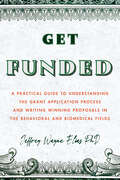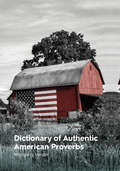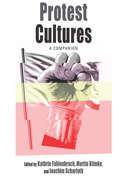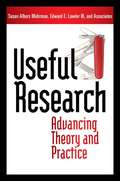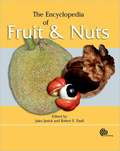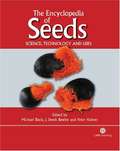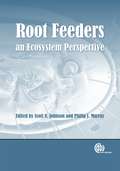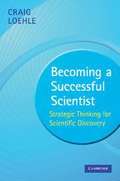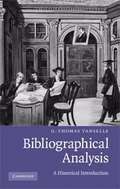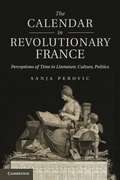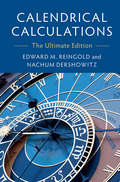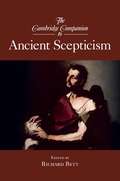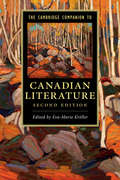- Table View
- List View
Electronic Discovery for Small Cases: Managing Digital Evidence and ESI
by Bruce A. Olson Tom O'ConnorAs organizations create increasing amounts of digital data, electronic discovery costs for lawyers can skyrocket. For firms with limited technology budgets, or cases with small amounts of electronically stored information (ESI), e-discovery can be challenging. Electronic Discovery for Small Cases offers effective, budget-friendly solutions for collecting, viewing, and analyzing electronic evidence that will benefit any litigator.
The Lawyer's Essential Guide to Writing: Proven Tools and Techniques
by Marie BuckleyThe Lawyer's Essential Guide to Writing is a readable, concrete guide to contemporary legal writing. Based on Marie Buckley's years of experience coaching lawyers, this book provides a systematic approach to all forms of written communication, from memoranda and briefs to e-mail and blogs. The book sets forth three principles for powerful writing and shows how to apply those principles to develop a clean and confident style.
The Lawyer's Guide to Microsoft® Outlook 2010
by Ben M. SchorrThe Lawyer's Guide to Microsoft® Outlook 2010 is the only guide written specifically for lawyers to help you be more productive, more efficient and more successful. More than just email, Outlook is also a powerful task, contact, and scheduling manager that will improve your practice.
Microsoft® OneNote In One Hour for Lawyers
by Ben M. SchorrEach copy of Microsoft® Office 2010 sold now includes OneNote, and its usage among lawyers is poised to skyrocket. With this guide, learn to use OneNote in your law practice to save time and increase productivity. Microsoft® OneNote in One Hour for Lawyers will explain, in plain English, how to get started with the software, develop best practices, and become far more effective in your note-taking and research.
Social Media for Lawyers: The Next Frontier
by Carolyn Elefant Nicole BlackAttorneys Elefant and Black provide a variety of ways for lawyers to take advantage of social media in their practice. General topics include: an overview of social media in the legal profession, why it is gaining traction with lawyers, types of social media platforms, choosing and implementing social media tools, networking and relationship building, branding and search engine optimization, getting started, best practices, and ethical and legal issues. Annotation ©2010 Book News, Inc. , Portland, OR (booknews. com)
Get Funded: A Practical Guide to Understanding the Grant Application Process and Writing Winning Proposals in the Behavioral and Biomedical Fields
by Jeffrey Wayne EliasAn essential guide for those who wish to hone their skills in writing successful grant applications. Scientific research relies on funding, and everyone who conducts research must become adept at funding their research. This book explains how to attain the number one source of research funding: grants. Readers will learn how to prepare grant proposals, how and when to interact with funding institutions, how to interpret and respond to peer review feedback, and much more. Most importantly, they will learn how to identify and convey what makes their proposed research impactful, innovative, and achievable. Author Jeffrey Wayne Elias has an extensive career in grant funding, including 27 years in academia working on grant support and grant reviewing, plus 19 years in grant management and administration. This experience affords him a well-rounded perspective on why some applications succeed while others don&’t. Elias helps readers develop and strengthen their ability to navigate the grant application process—ultimately enabling them to achieve &“grant literacy.&”
Dictionary of Authentic American Proverbs
by Wolfgang MiederDictionary of Authentic American Proverbs offers a comprehensive reference guide for distinctly American proverbs. Compiled by Wolfgang Mieder, a key figure in the field of proverb studies, this compendium features nearly 1,500 proverbs with American origins, spanning the 17th century to present day, including a scholarly introduction exploring the history of proverbs in America, the structure and variants of these proverbs, known authors and sources, and cultural values expressed in these proverbs. Along with a comprehensive bibliography of proverb collections and interpretive scholarship, this dictionary offers a glimpse into the history of American social and cultural attitudes through uniquely American language.
Protest Cultures: A Companion (Protest, Culture & Society #17)
by Martin Klimke Joachim Scharloth Kathrin FahlenbrachProtest is a ubiquitous and richly varied social phenomenon, one that finds expression not only in modern social movements and political organizations but also in grassroots initiatives, individual action, and creative works. It constitutes a distinct cultural domain, one whose symbolic content is regularly deployed by media and advertisers, among other actors. Yet within social movement scholarship, such cultural considerations have been comparatively neglected. Protest Cultures: A Companion dramatically expands the analytical perspective on protest beyond its political and sociological aspects. It combines cutting-edge synthetic essays with concise, accessible case studies on a remarkable array of protest cultures, outlining key literature and future lines of inquiry.
Useful Research: Advancing Theory and Practice
by Susan Albers Mohrman Edward E. Lawler IIIThis collection examines how useful research can be achieved and argues that in order to keep organizational research relevant to theory and practice, the approach must deviate from the orthodoxy of positivistic, pure research approaches. The contributing authors were selected for their demonstrated ability to conduct useful research, and they bring their unique professional experience to their chapters by describing the choices they make and the tactics they employ. The core message of this book is that in order to conduct research that is useful, researchers must learn from practice and intentionally position their work so that it finds a pathway to practice. While each chapter can stand alone, the book is crafted to provide multiple complementary perspectives on the topic of useful research. It does an outstanding job of describing what it takes to bridge the gap between theory and practice. It goes beyond advocacy, theoretical debate, and restatements of the problem to focus on the types of research methods that produce useful research. Topics include crafting research programs to yield useful knowledge, academic careers that yield useful knowledge, pathways to practice, institutional agents such as MBA programs and journals.
Encyclopedia of Fruit and Nuts
by Robert E Paull Jules JanickEver wanted to know the genus name for a coconut?Intended for all your research needs, this encyclopedia is a comprehensive collection of information on temperate and tropical fruit and nut crops. Entries are grouped alphabetically by family and then by species, making it easy to find the information you need. Coverage includes palms and cacti as well as vegetable fruits of Solanaceae and Curcurbitacea. This book not only deals with the horticulture of the fruit and nut crops but also discusses the botany, making it a useful tool for anyone from scientists to gardeners and fruit hobbyists.
The Encyclopedia of Seeds: Science, Technology and Uses
by Michael Black Peter Halmer J Bewley Gregory E WelbaumThis is the first scholarly reference work to cover all the major scientific themes and facets of the subject of seeds. It outlines the latest fundamental biological knowledge about seeds, together with the principles of agricultural seed processing, storage and sowing, the food and industrial uses of seeds, and the roles of seeds in history, economies and cultures. With contributions from 110 expert authors worldwide, the editors have created 560 authoritative articles, illustrated with plentiful tables, figures, black-and-white and colour photographs, suggested further reading matter and 670 supplementary definitions. The contents are alphabetically arranged and cross-referenced to connect related entries.
Tourism Society's Dictionary for the Tourism Industry
by Verite Reily CollinsThis dictionary is a handy reference covering everyday terms used within the tourism, travel, leisure and airline sectors. The dictionary provides an overview of terminology used within these global industries, complete with explanations for industry-specific terms and helpful annotated diagrams to illustrate travel related information, such as seating plans and airline tickets. It is a useful introduction for those new to studying or working in tourism and related industries. " Covers travel-related facts on over 130 countries, including capital cities, currencies and languages " Includes airline and airport codings for major airlines and airports worldwide " Lists the Phonetic Radio Alphabet as used by pilots and other transport professionals. " Provides a selection of interesting words and idioms useful for guides, tour managers and those compiling itineraries Find updated definitions here
Archaic Style in English Literature, 1590-1674
by Lucy MunroRanging from the works of Shakespeare, Spenser, Jonson and Milton to those of Robert Southwell and Anna Trapnel, this groundbreaking study explores the conscious use of archaic style by the poets and dramatists between 1590 and 1674. It focuses on the wide-ranging, complex and self-conscious uses of archaic linguistic and poetic style, analysing the uses to which writers put literary style in order to re-embody and reshape the past. Munro brings together scholarly conversations on temporality, memory and historiography, on the relationships between medieval and early modern literary cultures, on the workings of dramatic and poetic style, and on national history and identity. Neither pure anachronism nor pure nostalgia, the attempts of writers to reconstruct outmoded styles within their own works reveal a largely untold story about the workings of literary influence and tradition, the interactions between past and present, and the uncertain contours of English nationhood.
Becoming a Successful Scientist
by Craig LoehleLoehle (principal scientist, National Council for Air and Stream Improvement, Inc.) provides practical advice applicable for students and researchers in all scientific disciplines on how to be successful in their fields. A sampling of topics includes: strategic creativity and problem solving, analysis and solutions, conducting a research program, ethics, publishing, the practice of scientific discovery, and the myth of objective science advice. Annotation ©2010 Book News, Inc. , Portland, OR (booknews.com)
Bibliographical Analysis
by G. Thomas TanselleStudying printed books as physical objects can reveal not only how books were produced, but also how their design and layout features emerged and came to convey meanings. This concise and accessible introduction to analytical bibliography in its historical context explains in clear, non-specialist language how to find and analyze clues about a book's manufacture and how to examine the significance of a book's design. Written by one of the most eminent bibliographical and textual scholars working today, the book is both a practical guide to bibliographical research and a history of bibliography as a developing field of study. For all who use books, this is an ideal starting point for learning how to read the object along with the words.
A Bibliography of William Wordsworth 1787-1930
by Mark L. ReedThe publishing history of William Wordsworth's writings is complex and often obscure. These two volumes set out, for the first time, a comprehensive, detailed bibliographic description of every edition of Wordsworth's writings up to 1930. The great variety of forms in which readers encountered both authorized and unauthorized texts by Wordsworth is revealed, not only as produced during his lifetime but also during the years of his largest sales, popularity and influence, the late nineteenth and early twentieth centuries. The bibliography provides new information about hundreds of printings and their internal and external designs, processes of production, sales, contents and variant texts and illustrations. More than a record of the transmission and reception of Wordsworth and his writings, it offers invaluable new data for the study of British publishing history and the reception and readership of British Romantic literature.
Brand Society
by Martin KornbergerBrands are a fait accompli: they represent a mountain range of evidence in search of a theory. They are much exploited, but little explored. In this book, Martin Kornberger sets out to rectify the ratio between exploiting and exploring through sketching out a theory of the Brand Society. Most attempts to explain the role of brands focus on brands either as marketing and management tools (business perspective) or a symptoms of consumerism (sociological perspective). Brand Society combines these perspectives to show how brands have the power to transform both the organizations that develop them and the lifestyles of the individuals who consume them. This holistic approach shows how brands function as a medium between producers and consumers in a way that is rapidly transforming our economy and society. That's the bottom line of the Brand Society: brands are a new way of organizing production and managing consumption. Using an array of practical case studies from a diverse set of organizations, this book provides a fascinating account of the way in which brands influence the lives of individuals and the organizations they work in.
Brands, Competition Law and IP
by Desai, Deven R. and Lianos, Ioannis and Waller, Spencer Weber Deven R. Desai Ioannis Lianos Spencer Weber WallerBrands and brand management have become a central feature of the modern economy and a staple of business theory and business practice. Contrary to the law's conception of trademarks, brands are used to indicate far more than source and/or quality. This volume begins the process of broadening the legal understanding of brands by explaining what brands are and how they function, how trademark and antitrust/competition law have misunderstood brands, and the implications of continuing to ignore the role brands play in business competition. This is the first book to engage with the topic from an interdisciplinary perspective, hence it will be a must-have for all those interested in the phenomenon of brands and how their function is recognized by the legal system. The book integrates both a competition and an intellectual property law dimension and explores the regulatory environment and case law in both Europe and the United States.
The Calendar in Revolutionary France: Perceptions of Time in Literature, Culture, Politics
by Sanja PerovicOne of the most unusual decisions of the leaders of the French Revolution - and one that had immense practical as well as symbolic impact - was to abandon customarily-accepted ways of calculating date and time to create a Revolutionary calendar. The experiment lasted from 1793 to 1805, and prompted all sorts of questions about the nature of time, ways of measuring it and its relationship to individual, community, communication and creative life. This study traces the course of the Revolutionary Calendar, from its cultural origins to its decline and fall. Tracing the parallel stories of the calendar and the literary genius of its creator, Sylvain Maréchal, from the Enlightenment to the Napoleonic era, Sanja Perovic reconsiders the status of the French Revolution as the purported 'origin' of modernity, the modern experience of time, and the relationship between the imagination and political action.
Calendrical Calculations
by Nachum Dershowitz Edward M. ReingoldA valuable resource for working programmers, as well as a fount of useful algorithmic tools for computer scientists, this new edition of the popular calendars book expands the treatment of the previous edition to new calendar variants: generic cyclical calendars and astronomical lunar calendars as well as the Korean, Vietnamese, Aztec, and Tibetan calendars. The authors frame the calendars of the world in a completely algorithmic form, allowing easy conversion among these calendars and the determination of secular and religious holidays. LISP code for all the algorithms are available on the Web.
Calendrical Calculations (3rd Edition): The Ultimate Edition
by Edward M. Reingold Nachum DershowitzA valuable resource for working programmers, as well as a fount of useful algorithmic tools for computer scientists, this new edition of the popular calendars book expands the treatment of the previous edition to new calendar variants: generic cyclical calendars and astronomical lunar calendars as well as the Korean, Vietnamese, Aztec, and Tibetan calendars. The authors frame the calendars of the world in a completely algorithmic form, allowing easy conversion among these calendars and the determination of secular and religious holidays. LISP code for all the algorithms are available on the Web.<P><P> Has general appeal across computer science and beyond LISP code available on the web site.<P> Now includes generic cyclical calendars and astronomical lunar calendars as well as the Korean, Vietnamese, Aztec, and Tibetan calendars.
The Cambridge Atlas of Herschel Objects
by James Mullaney Wil TirionThis superb, all-purpose star atlas is the first of its kind devoted to observing the Herschel objects with binoculars and telescopes. It displays over 2500 of the most visually-attractive star clusters, nebulae and galaxies that were discovered by Sir William, Caroline and Sir John Herschel, and is a must-have for stargazers who want to explore these fascinating objects. Covering the entire sky from the North to the South Celestial Pole, and showing all 88 constellations, it is also a general sky atlas showing variable, double and multiple stars, and the Milky Way. Written by experienced observer James Mullaney and illustrated by renowned celestial cartographer Wil Tirion, this is a magnificent 'celestial roadmap' to some of the finest deep-sky showpieces. Spiral bound and printed in red-light friendly colors for use at a telescope, with color-coded symbols for easy recognition and identification, this is an all-purpose observing reference for all amateur observers.
Cambridge Classical Studies: Latin Literature and its Transmission
by Richard HunterThis is a series of innovative studies in the textual and literary criticism of Latin literature, exploring how these two branches of the discipline are mutually supportive. The contributors include many leading scholars in the field. Individual essays are devoted to Catullus, Cicero, Horace, Lucretius, Ovid, Tacitus and Virgil, and there are also essays on the Renaissance reception of Virgil and on principles of editorial practice. The collection celebrates the extraordinary contribution which Michael Reeve has made and continues to make to Latin studies.
The Cambridge Companion to Ancient Scepticism
by Richard BettThis volume offers a comprehensive survey of the main periods, schools, and individual proponents of scepticism in the ancient Greek and Roman world. The contributors examine the major developments chronologically and historically, ranging from the early antecedents of scepticism to the Pyrrhonist tradition. They address the central philosophical and interpretive problems surrounding the sceptics' ideas on subjects including belief, action, and ethics. Finally, they explore the effects which these forms of scepticism had beyond the ancient period, and the ways in which ancient scepticism differs from scepticism as it has been understood since Descartes. The volume will serve as an accessible and wide-ranging introduction to the subject for non-specialists, while also offering considerable depth and detail for more advanced readers.
The Cambridge Companion to Canadian Literature (Cambridge Companions to Literature)
by Kröller Eva-MarieThis book offers a comprehensive and lively introduction to major writers, genres and topics in Canadian literature. Addressing traditional assumptions and current issues, contributors pay attention to the social, political and economic developments that have informed literary events. Broad surveys of fiction, drama, and poetry are complemented by chapters on Aboriginal writing, autobiography, literary criticism, writing by women, and the emergence of urban writing in a country historically defined by its regions. Also discussed are genres that have a special place in Canadian literature, such as nature-writing, exploration and travel-writing, and short fiction. Athough the emphasis is on literature in English, a substantial chapter on francophone writing is included.

